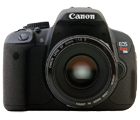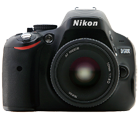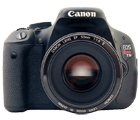Canon 40D or 50D?
by Adam
(Danville, CA, USA)
Hi, I've been reading the SLR guide for about a year now, and this was actually my primary resource for deciding on my first DSLR (a Rebel XS). Well I've had that camera for a year now and, mostly thanks to the pressures of istockphoto.com, I've gotten a lot better. I now have a respectable collection of lenses and I think I'm ready to upgrade. I mostly do nature photography (from landscape to still life to birding), and I dabble in work for local elections. I'm also heading off to college in the fall of 2010, so I'd like a camera that will last for a few years. I like wildlife photography, so I'd like to stick with a crop body for the extra zoom. One of the biggest reasons I want to upgrade is that my camera is just too weak. Its too small for my hands and it feels like a toy. I want something substantial, plus it stings whenever I go to a shoot with a decent lens and my off body flash, and I see a guy with a much nicer camera shooting with a kit lens on auto. I want an upgrade in image quality as well, although i understand the difference will not be night and day. SO this leaves me with a choice between the 40D and 50D. The 50D is obviously the more advanced camera, but it is significantly more expensive (There is no set price for me, but I don't want to waste money) and has a LOT of pixels on a small sensor. I have read a lot about, and worry about, loss of image quality in the form of noise, fringing, and luminance. Then again, I worry that opting for the 10MP sensor as it may leave me behind in the pixel race quickly, especially since I want a camera to last. So what do you think, should I find a great deal on a 40D, wait for a price drop on the 50D, or maybe see what happens with the 60D? Thanks for the help!


